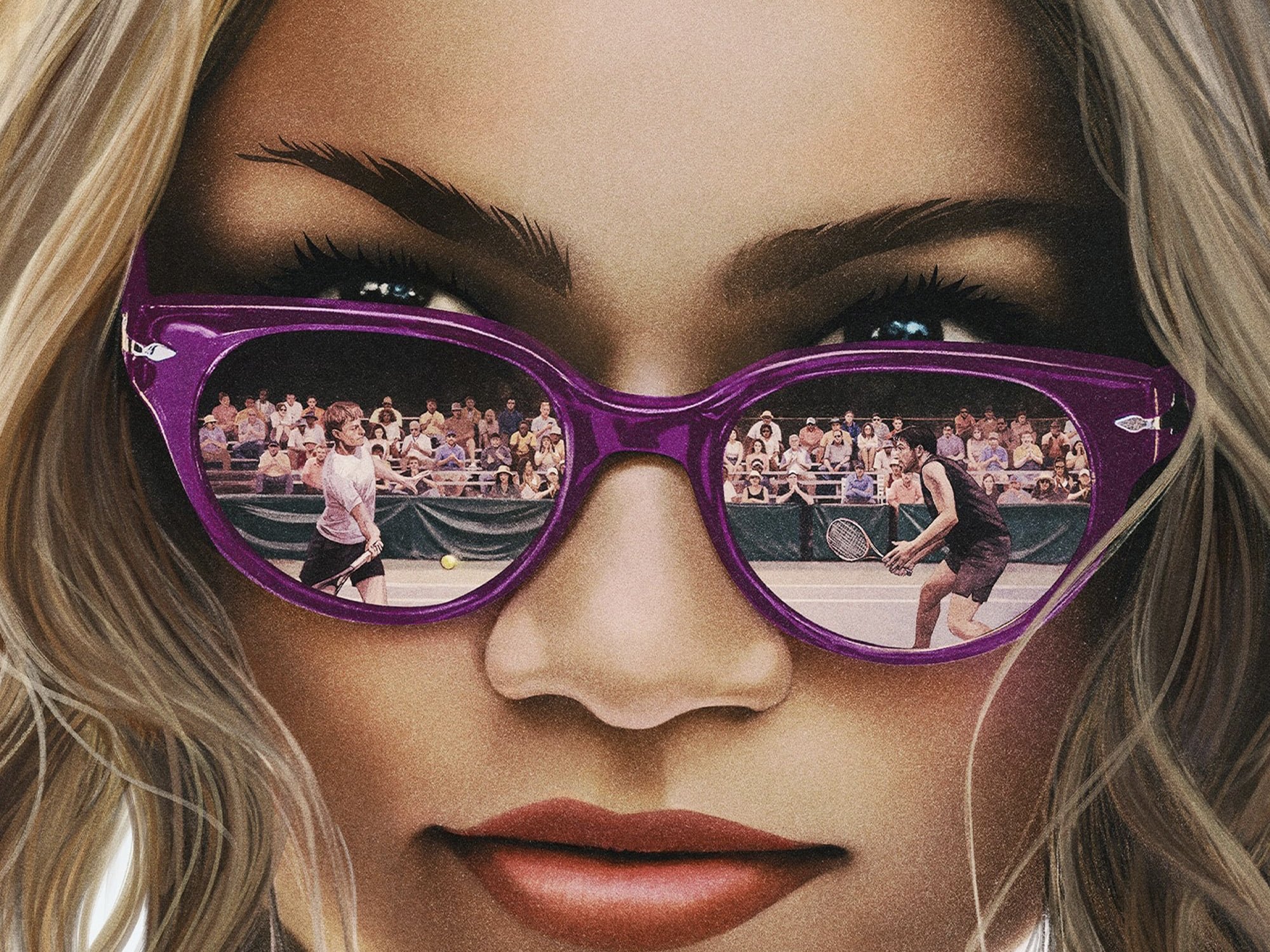Film Review: Challengers
LUCA GUADAGNINO’S CHALLENGERS IS A GRAND SLAM
Live action anime tennis and the best sports movie since Creed, Luca Guadagnino’s Challengers crackles with electricity and searing chemistry among its three leads. Even without its misleading marketing’s emphasis on sex — there’s barely any in the film — Challengers synthesizes eroticism and kineticism through the art of tennis, and into one of the best films of the year so far. Minor spoilers ahead…
“I don’t watch tennis matches. It’s quite boring to me.” For such a disinterested spectator of the sport, it’s actually astounding that Luca Guadagnino has made Challengers: a movie that fully understands the visceral thrills of the game and the psychological-slash-psychosexual tendrils that reach far beyond the confines of a hard court. A jangle of nerves, athletic tape, and raw heat, Guadagnino’s barnburner sports drama is able to drill deep into its audience’s adrenal centers like no other film this year. Even with its misleading marketing’s emphasis on sex - there’s barely any on screen - Challengers synthesizes eroticism and kineticism into the basest of cinematic pleasures. In other words, it’s a grand slam.
In 2019 at the Phil’s Tiretown Challenger in New Rochelle, New York, Art Donaldson (Mike Faist) faces off against Patrick Zweig (Josh O’Connor) in the final. In the stands, Tashi Donaldson (Zendaya), Art’s wife and Patrick’s ex-girlfriend, anxiously watches as the two men, glistening and dripping in an intense showdown, grapple for the title. It’s the match that bookends the entirety of Challengers, which chronicles the white hot tangle among three competitors, friends, and lovers from their time as pre-college prodigies to adults. 13 years earlier, Tashi - herself a teen tennis phenom whose career ended with a gruesome on-court injury - lectures the boys: “You don’t know what tennis is. It’s a relationship.” With its framework match taking place at a throwaway regional tournament, the competitive stakes in Challengers couldn’t be lower, but for the players and a single observer, the personal ones might as well be in the stratosphere: a decade-and-a-half of passion, betrayal, and competition coming to a head in a single game of tennis.
“A jangle of nerves, athletic tape, and raw heat, Guadagnino’s barnburner drama is able to drill deep into its audience’s adrenal centers like no other film this year.”
Challengers is the debut screenplay from novelist and playwright Justin Kuritzkes, or to those dialed into Hollywood power couples, the husband of Past Lives scribe and director Celine Song. Pulling a tether from his wife’s Oscar-nominated film from last year, Kuritzkes script also features a woman caught between the affections of two men. But where Past Lives is buoyed by wholesome patience and the aching scars of roads not taken, Challengers is fueled by razorwire oneupmanship and propulsive acidity. A barbed character study of dueling wits and precariously shifting power dynamics, the film explores its love triangle through the metaphor of tennis: the thrill, the manipulation, the immediacy. If Challengers’ rocket-like momentum is housed in the vehicle of sport, then its engine is comprised of its flawed humans: reckless, messy, and desperate.
There isn’t a single weak link in Challengers’ trio of damaged aces. Mike Faist’s Art, molded into a faltering, jaded star under his wife’s tutelage - Tashi is both coach and spouse - is itching for approval and relevancy as he slowly ages out of the game. “How are you going to look at me if I still can’t beat Patrick Zweig?” he asks his wife. “Just like this,” she coldly replies. Patrick, on the other hand, is a professional vagrant in the world of tennis: the walking definition of “washed-up” who bums sandwiches off of tournament officials and finds housing through Tinder. The two men circle one another - and Tashi - with ferocity and playfulness, and Faist and O’Connor effortlessly toggle through their timeline-jumbled states of best pals, friendly competitors, lovers, and bitter rivals. And if Art and Patrick are Challengers’ backbone, then Zendaya is, if not its heart, then certainly its steely, manipulative center. I haven’t really been sold on Zendaya the movie star as of late - Malcolm & Marie was a dud, Dune: Part Two has glimmers - but Challengers taps right in as her best work to date: a fierce “I’m not your mommy” performance that turns into something entirely different and unforgettable by the end.
“If Challengers’ rocket-like momentum is housed in the vehicle of sport, then its engine is comprised of its flawed humans: reckless, messy, and desperate.”
In addition to Kuritzkes sizzling screenplay, Challengers also showcases Luca Guadagnino at his most assured. With DP Sayombhu Mukdeeprom (Uncle Boonmee Who Can Recall His Past Lives, Call Me By Your Name) behind the lens, the film jolts alive the interplay of power, desire, and ambition through the metaphor of a fuzzy yellow ball. In Challengers, serves, volleys, backhands, and slams aren’t just sport, they’re dialogue as well; expertly cut together by editor Marcos Costa, the love triangle tête-à-têtes mimic the game they just can’t quit. On the court, Challengers roars with visual confidence as its tennis scenes are teeming with sequences that will send audiences levitating: split “triopters,” transparent floors, and dizzying ball-cams are only some of the flourishes that strike like lightning. And screaming underneath it all? Trent Reznor and Atticus Ross’ sublime score, which buzzes with pump-you-up intensity that never bothers to differentiate between gametime mayhem and off-court jousting.
With nary a sex scene among its 131-minute runtime, Challengers still feels like one of the most charged and erotic films of this young decade. Luca Guadagnino has unleashed a full arsenal of performers and prowess to deliver a paradox of a film: the rare blockbuster-level crowdpleaser that’s still full of blood, vitality, and texture. Challengers will grab you by the throat, and only relents with its unbelievable final frames.








